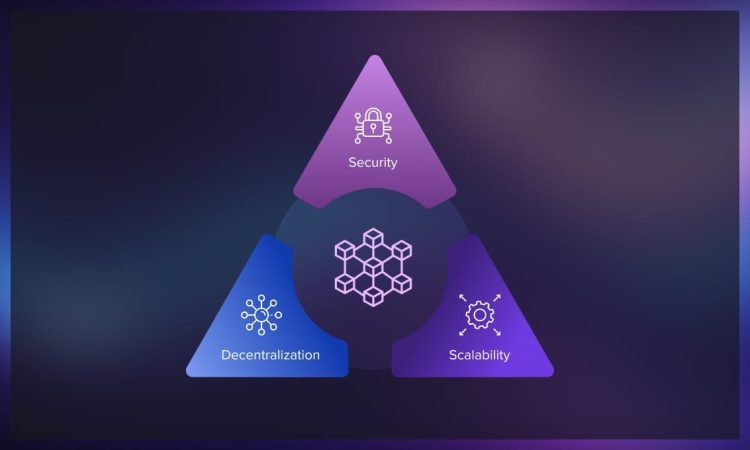Introduction
Blockchain technology has emerged as one of the most transformative innovations of the 21st century. Initially gaining fame through cryptocurrencies like Bitcoin, blockchain’s potential to revolutionize industries is now widely recognized, ranging from finance to supply chains, healthcare, real estate, and more. Its decentralized nature, security features, and transparency have caught the attention of governments, regulators, and industry leaders. However, with its growing adoption comes the challenge of creating effective regulations that can accommodate blockchain’s unique characteristics while ensuring compliance, security, and consumer protection.
As blockchain technology continues to evolve and spread across various sectors, it is critical to examine how regulatory trends are likely to develop in the future. This article explores the potential regulatory changes we may see in response to blockchain’s increasing influence, the challenges regulators face, and the strategies that governments may adopt to address the disruptive power of blockchain.
1. The Current Regulatory Landscape for Blockchain
1.1 Fragmented Global Regulations
At present, blockchain regulation is highly fragmented across the globe. Some countries have already established clear and supportive frameworks for blockchain and cryptocurrencies, while others have remained neutral or imposed strict regulations. There are also countries where blockchain is banned entirely, leading to market fragmentation and regulatory uncertainty.
- Supportive jurisdictions like Switzerland and Singapore have developed clear legal frameworks for blockchain, fostering a thriving ecosystem for crypto businesses and startups. Switzerland, for example, has designated Zug as “Crypto Valley,” providing tax incentives and clear regulations.
- Restrictive jurisdictions such as China and India have adopted more cautious or outright prohibitive stances. China, for instance, has banned cryptocurrency trading and mining, while India has considered introducing bills that may severely restrict cryptocurrency activities.
1.2 Challenges Faced by Regulators
The decentralized and borderless nature of blockchain presents several challenges to regulators. Traditional regulatory frameworks were designed for centralized systems, making it difficult to apply them directly to decentralized technologies like blockchain. Key challenges include:
- Jurisdictional issues: Determining which laws apply when blockchain transactions occur across borders, with different countries’ regulatory frameworks.
- AML/KYC compliance: Ensuring that blockchain transactions, particularly cryptocurrencies, comply with anti-money laundering (AML) and know-your-customer (KYC) regulations.
- Security and fraud prevention: Safeguarding users from fraud, cyberattacks, and other security threats that blockchain platforms may face.
- Taxation: Determining how to tax cryptocurrency transactions and profits in an environment where transactions are pseudonymous and sometimes cross international borders.
2. Emerging Regulatory Trends for Blockchain Technology
2.1 Increased Global Cooperation and Harmonization
As blockchain technology becomes more widespread, there is growing recognition that global cooperation will be essential to creating a cohesive regulatory framework. With blockchain’s borderless nature, national regulations alone will not be enough to address the challenges posed by decentralized systems. As a result, international organizations such as the Financial Action Task Force (FATF) and the International Organization of Securities Commissions (IOSCO) have already started working on global standards for blockchain and cryptocurrency regulation.
- Example: The FATF’s Travel Rule requires that cryptocurrency exchanges collect and share information about the parties involved in transactions to prevent money laundering and terrorist financing. Such global efforts indicate that international alignment is on the horizon.
Impact: Over time, regulatory frameworks may converge, allowing for standardized regulations across countries. This will provide greater legal clarity, reduce the risk of regulatory arbitrage, and foster innovation in a more stable and predictable environment.
2.2 Tailored Regulations for Different Blockchain Applications
As blockchain technology expands beyond cryptocurrencies into sectors such as supply chain management, healthcare, identity verification, and digital assets, we are likely to see sector-specific regulations emerge. Regulators are expected to focus on creating customized rules that address the particular needs and risks of different industries.
- Example: In the healthcare sector, blockchain can be used for secure and transparent record-keeping of patient data. This would require regulations focused on data privacy, healthcare compliance standards, and ensuring that patient consent is properly handled.
- Example: In supply chains, blockchain’s ability to track goods across multiple parties can revolutionize transparency. Regulations here will likely focus on anti-counterfeiting laws, environmental sustainability, and ensuring that blockchain records can be legally recognized in dispute resolution.
Impact: We will see regulations that are fine-tuned to the unique needs of various industries, which will promote adoption while minimizing risks specific to each sector.
2.3 Stronger Consumer Protection Laws
As blockchain-powered platforms and decentralized applications (dApps) gain traction, governments will likely introduce stronger consumer protection laws. Many blockchain applications, particularly in DeFi (decentralized finance), NFTs (non-fungible tokens), and smart contracts, operate with limited or no human intervention. While this increases efficiency, it also exposes consumers to potential fraud, scams, and operational failures.
- Example: Smart contracts, which are self-executing agreements based on blockchain technology, can be used to automatically trigger transactions. However, they are susceptible to coding errors, bugs, or even malicious exploits that may cause financial losses. Regulators may implement laws that require auditability of smart contracts, particularly in high-value sectors like finance and real estate.
- Example: The rise of NFTs has brought concerns over intellectual property rights, counterfeiting, and ownership. As NFT marketplaces and creators proliferate, consumer protection laws are likely to evolve to provide clearer rights and dispute resolution mechanisms.
Impact: By introducing stronger consumer protection regulations, governments can help build trust in blockchain applications, ensuring that users are not left vulnerable in the face of technological failures or malicious actors.
2.4 Clarification of Taxation and Reporting Requirements
Blockchain has made transactions more anonymous, raising challenges for regulators when it comes to taxing and tracking income derived from cryptocurrency and blockchain-based assets. As blockchain adoption increases, tax authorities will likely enhance efforts to regulate the taxation of digital assets, cryptocurrency profits, and initial coin offerings (ICOs).
- Example: The IRS (Internal Revenue Service) in the United States already requires taxpayers to report cryptocurrency transactions, but with the increasing use of DeFi protocols and staking, more detailed regulations may be necessary to address the unique aspects of blockchain transactions. International tax cooperation will likely be essential to prevent tax evasion through decentralized finance systems.
Impact: Clearer taxation rules for digital assets will ensure that blockchain-related income is taxed appropriately, while also helping governments prevent illicit activities like tax evasion and money laundering.
2.5 **Increased Focus on Decentralized Governance and Regulation
As blockchain’s decentralized nature challenges traditional governance systems, regulators may explore the concept of decentralized governance. Rather than relying solely on traditional regulators, decentralized organizations (DAOs) and blockchain projects may create self-regulation mechanisms within their communities.
- Example: DAOs (Decentralized Autonomous Organizations) allow token holders to participate in decision-making, including the creation of rules and guidelines within blockchain ecosystems. Regulators may explore how these governance models can coexist with national regulations, perhaps through hybrid regulatory approaches where DAOs are required to comply with national laws, while also maintaining decentralized control over internal processes.
Impact: In the future, we may witness more collaborative regulation, where both governments and decentralized communities share the responsibility of maintaining regulatory compliance. This could create more agile and responsive regulatory systems.

3. Challenges for Regulators in Blockchain’s Future
Despite the anticipated trends in blockchain regulation, there are significant challenges that regulators will face:
3.1 Technology Outpacing Regulation
Blockchain is evolving rapidly, and regulators may struggle to keep up with new innovations and use cases. With the development of new consensus mechanisms, scaling solutions, and decentralized finance applications, regulatory bodies will need to adopt dynamic and forward-thinking strategies.
3.2 Privacy Concerns
Blockchain transactions, while pseudonymous, are inherently transparent. However, the push for data privacy and user anonymity could collide with the need for regulation and compliance. Balancing these interests will be a delicate task for regulators.
3.3 Cross-Border Cooperation
Blockchain is inherently global, meaning that national regulations may prove insufficient to govern decentralized ecosystems. Regulators will need to find ways to cooperate across borders, ensuring that standards are consistent and enforcement is effective on an international scale.
Conclusion: Regulatory Trends for Blockchain’s Future
The future of blockchain regulation will likely be characterized by global cooperation, sector-specific rules, stronger consumer protection, and clearer tax frameworks. As blockchain continues to disrupt traditional systems, regulatory bodies will have to balance the benefits of decentralization with the need for oversight. In doing so, they will shape a regulatory landscape that enables blockchain innovation while ensuring stability, security, and fairness.
Ultimately, the success of blockchain regulation will depend on how well regulators can adapt to technological advances, collaborate internationally, and protect the interests of consumers and businesses alike. The next few years will likely see significant evolution in how governments approach blockchain, laying the foundation for a more cohesive, regulated global blockchain ecosystem.













































